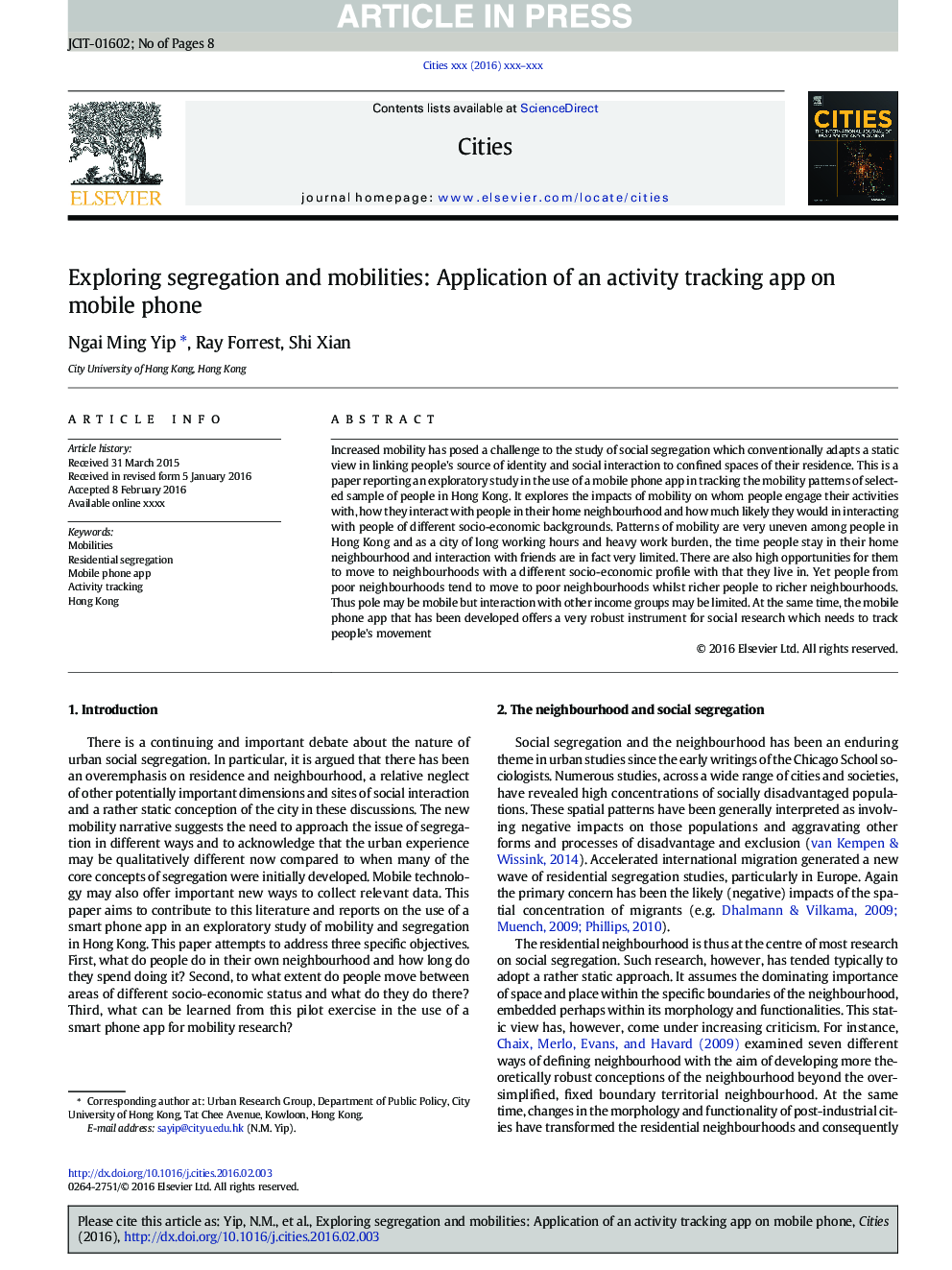| Article ID | Journal | Published Year | Pages | File Type |
|---|---|---|---|---|
| 7417927 | Cities | 2016 | 8 Pages |
Abstract
Increased mobility has posed a challenge to the study of social segregation which conventionally adapts a static view in linking people's source of identity and social interaction to confined spaces of their residence. This is a paper reporting an exploratory study in the use of a mobile phone app in tracking the mobility patterns of selected sample of people in Hong Kong. It explores the impacts of mobility on whom people engage their activities with, how they interact with people in their home neighbourhood and how much likely they would in interacting with people of different socio-economic backgrounds. Patterns of mobility are very uneven among people in Hong Kong and as a city of long working hours and heavy work burden, the time people stay in their home neighbourhood and interaction with friends are in fact very limited. There are also high opportunities for them to move to neighbourhoods with a different socio-economic profile with that they live in. Yet people from poor neighbourhoods tend to move to poor neighbourhoods whilst richer people to richer neighbourhoods. Thus pole may be mobile but interaction with other income groups may be limited. At the same time, the mobile phone app that has been developed offers a very robust instrument for social research which needs to track people's movement
Related Topics
Social Sciences and Humanities
Business, Management and Accounting
Tourism, Leisure and Hospitality Management
Authors
Ngai Ming Yip, Ray Forrest, Shi Xian,
